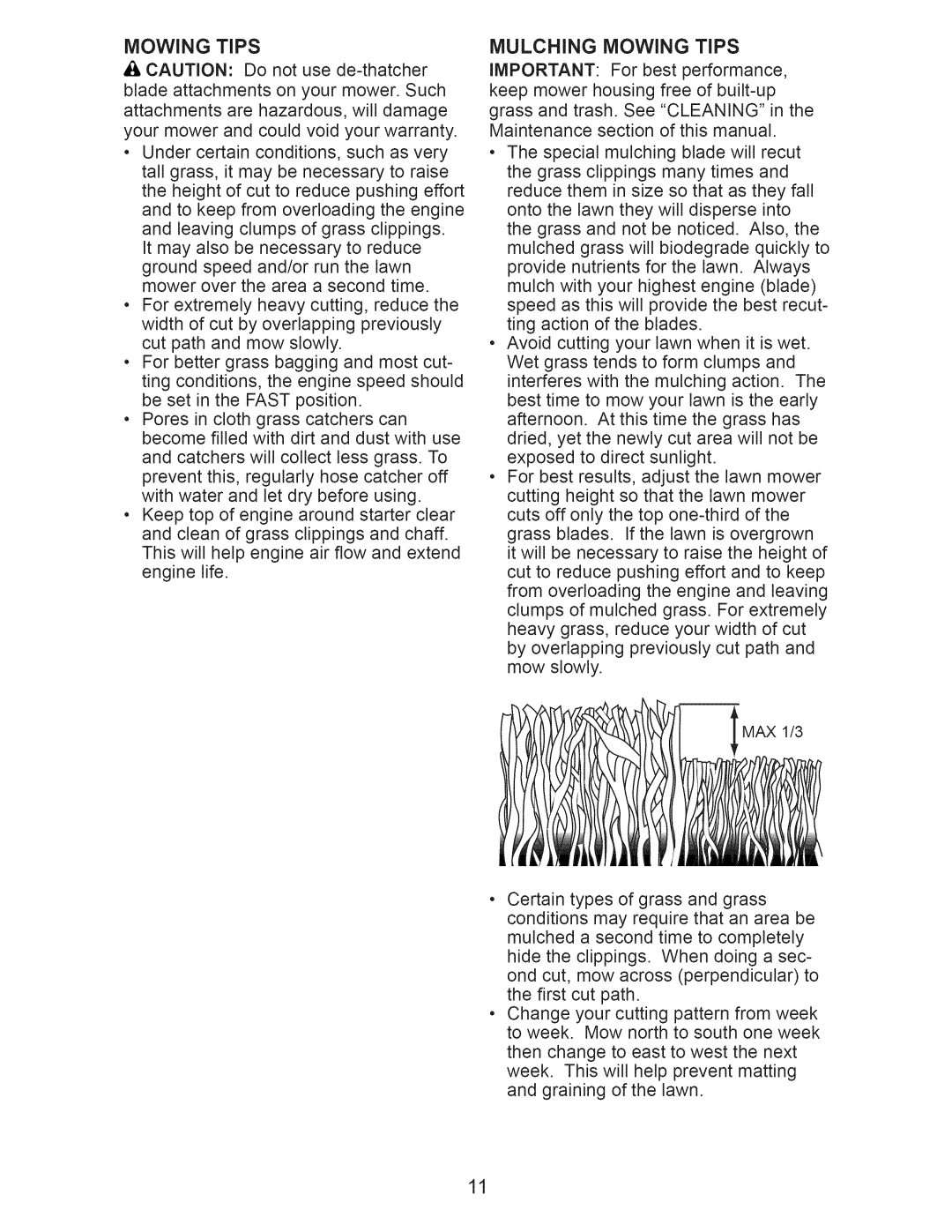
MOWING TIPS
CAUTION: Do not use
•Under certain conditions, such as very tall grass, it may be necessary to raise the height of cut to reduce pushing effort and to keep from overloading the engine and leaving clumps of grass clippings.
It may also be necessary to reduce
ground speed and/or run the lawn mower over the area a second time.
•For extremely heavy cutting, reduce the width of cut by overlapping previously cut path and mow slowly.
•For better grass bagging and most cut- ting conditions, the engine speed should be set in the FAST position.
•Pores in cloth grass catchers can become filled with dirt and dust with use
and catchers wil! collect less grass. To prevent this, regularly hose catcher off with water and let dry before using.
•Keep top of engine around starter clear and clean of grass clippings and chaff. This will help engine air flow and extend engine life.
MULCHING MOWING TIPS
IMPORTANT: For best performance, keep mower housing free of
grass and trash. See "CLEANING" in the Maintenance section of this manual.
•The special mulching blade will recut the grass clippings many times and reduce them in size so that as they fall onto the lawn they will disperse into the grass and not be noticed. Also, the mulched grass will biodegrade quickly to provide nutrients for the lawn. Always mulch with your highest engine (blade) speed as this will provide the best recut- ting action of the blades.
•Avoid cutting your lawn when it is wet. Wet grass tends to form clumps and interferes with the mulching action. The best time to mow your lawn is the early afternoon. At this time the grass has dried, yet the newly cut area will not be exposed to direct sunlight.
•For best results, adjust the lawn mower cutting height so that the lawn mower cuts off only the top
it will be necessary to raise the height of cut to reduce pushing effort and to keep from overloading the engine and leaving clumps of mulched grass. For extremely heavy grass, reduce your width of cut by overlapping previously cut path and mow slowly.
•Certain types of grass and grass conditions may require that an area be mulched a second time to completely hide the clippings. When doing a sec- ond cut, mow across (perpendicular) to the first cut path.
•Change your cutting pattern from week to week. Mow north to south one week
then change to east to west the next week. This will help prevent matting and graining of the lawn.
11
